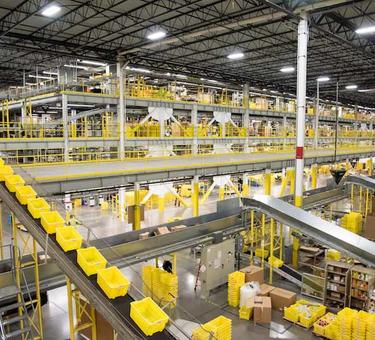Sustainability has long been a focus of the logistics real estate industry, primarily expressed through building design and energy efficiency. With the significant growth of e-commerce and its outsized contribution to logistics demand, it is prudent to evaluate sustainability with this new and growing use in mind.
E-commerce is improving the sustainability of retail, according to academic studies that measure end-to-end environmental impacts. The key to greater sustainability in retail is reducing the transportation impact. Here, e-commerce is substantially more efficient. By consolidating goods transportation into trucks and vans making several deliveries on a circular route, rather than individual point-to-point trips by consumer vehicles, the carbon footprint of transportation falls by more than 50% as measured by kg CO2e. While packaging for e-commerce is greater, it does not outweigh the transportation savings created by online shopping. In total, the end-to-end environmental impact is estimated to be roughly 15% lower for online versus in-store shopping.
Our research special report reveals that logistics real estate is leading its commercial property peers in energy efficiency, aided by sustainable design features. Increasingly, well-located logistics real estate is a key component in optimizing supply chains and sustainability in the age of e-commerce.
